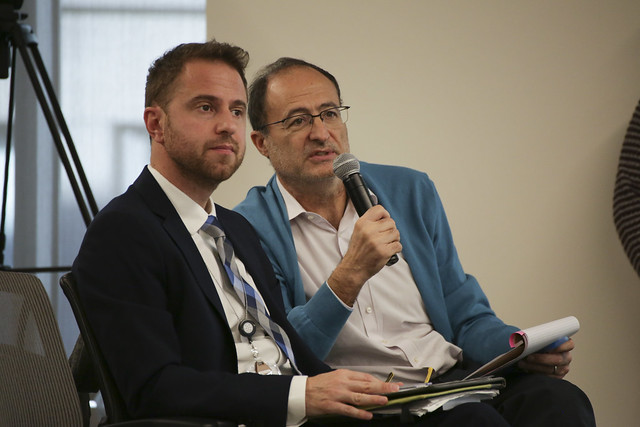Speaker
- Harold Alderman, Senior Research Fellow, IFPRI (Presentation | Video)
Commentators
- Jon Brause, Director, World Food Programme’s (WFP) Washington Liaison Office (Video)
- Louise Fox, Chief Economist, USAID (Video)
- Michal Rutkowski, Senior Director, Social Protection and Jobs Global Practice, World Bank Group (Video)
Closing Remarks
- Shenggen Fan, Director General, IFPRI (Video)
Moderator
- Karen Brooks, Director, CGIAR Research Program on Policies, Institutions and Markets, IFPRI (Video)
- Q&A Video
With 1.5 billion people covered globally, food and voucher programs provide an important lifeline for the poor and vulnerable. The book –The 1.5 Billion People Question: Food, Vouchers or Cash Transfers? –reveals that while countries increasingly support people with cash as a form of safety net, food-based programs are still important interventions in some contexts.
The book highlights how food and voucher programs remain relevant, and in most circumstances, have improved over time. One main theme of the book is that policy is not about optimal strategies but rather, in part, the legacy of previous policies.
Join us as the lead editor and commentators explore how to genuinely integrate the agendas of social protection and food assistance.




